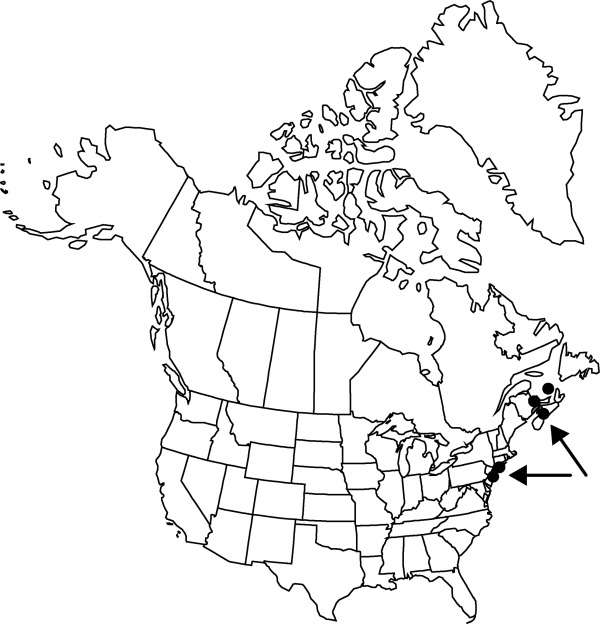Difference between revisions of "Suaeda rolandii"
Canad. J. Bot. 56: 588, figs. 5, 9, 13. 1978.
FNA>Volume Importer |
FNA>Volume Importer |
(No difference)
| |
Revision as of 23:26, 16 December 2019
Herbs, annual, procumbent to erect, dark green, 2–7 dm. Stems ascending or erect, light brownish green, 1–several-branched mainly in distal part of plant, becoming woody at base; branches ascending or erect. Leaves ascending; blade linear, 17–30 × 0.7–1.5 mm, widest proximal to middle, apex acute. Glomes on main stem and lateral branches, not crowded into compound spikes, 1–3-flowered; bracts shorter than leaves, 4–12 mm. Flowers bisexual; perianth ± zygomorphic or irregular (segments slightly unequal), 2–4 mm diam.; perianth segments abaxially rounded and keeled, distally hooded, apex acute; stigmas 2–3. Seeds dimorphic; lenticular, 1.5–2.3 mm diam., with seed coat black to reddish, finely reticulate; or flat, 1.5–2.3 mm diam., with seed coat brown, dull. 2n = 90.
Phenology: Flowering late summer–fall.
Habitat: Tidal flats, salt marshes
Elevation: 1-10 m
Distribution

N.B., N.S., Que., N.J., N.Y.
Discussion
Besides being confirmed in the range given above, this rare species is said to occur along the coast from New Hampshire to Canada (S. E. Clemants 1992).
of conservation concern
Selected References
None.